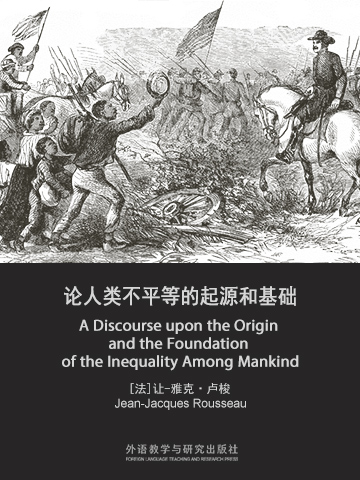野蛮人为自己活着,而社会中的人永远是身不由己。
The text was written in 1754 in response to a prize competition of the Academy of Dijon answering the prompt: What is the origin of inequality among people, and is it authorized by natural law? Though he was not recognized by the prize committee for this piece (as he had been for the Discourse on the Arts and Sciences) he nevertheless published the text in 1755.
本书是1754年卢梭应法国第戎科学院的征文而写的论文。在性质上,这是一部阐发政治思想的著作,其重要性仅次于1762年卢梭的《社会契约论》;而在思想体系上,本书可视为《社会契约论》的基础的绪论。当卢梭同时代的一些哲学家把人类的进步设想为一个不断上升的过程时,卢梭却已发现人类历史发展本身所具有的两面性(进步与落后)和所包含的内在矛盾。他认为贫困和奴役,亦即人类不平等的产物。
Discourse on the Origin and Basis of Inequality Among Men (French: Discours sur l'origine et les fondements de l'inégalité parmi les hommes), also commonly known as the "Second Discourse", is a work by philosopher Jean-Jacques Rousseau.
Rousseau first exposes in this work his conception of a human state of nature, presented as a philosophical fiction (like by Thomas Hobbes, unlike by John Locke), and of human perfectibility, an early idea of progress. He then explains the way, according to him, people may have established civil society, which leads him to present private property as the original source and basis of all inequality.
- INTRODUCTORY NOTE
- FIRST PART
- SECOND PART






















 京公网安备 11010802032529号
京公网安备 11010802032529号
笔记加载中...